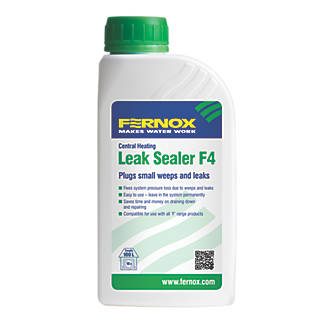“Should I use Leak Sealant on my Central Heating Leak?”
This is a question we are asked a lot by customers who have had ongoing central heating leaks and are desperate for a solution….and we always give the same answer…….

…Leak sealant is designed for very, very tiny leaks. We get call after call from customers who have tried it and it either worked for a short while, slowed down the leak, or did nothing at all! It is often suggested by plumbers and even national boiler maintenance companies as a cheap and easy fix. The only thing is, if the sealant does work, it tends to be a temporary fix. It’s a bit like a sticking plaster, that will come off in the future and so the leak comes back.
So wouldn’t you think it was worth a shot?
Well unfortunately what we find is that once it is in the system, but not working, the trace gas used during the leak detection causes the sealant to temporarily plug the leak. Then the leak come back again once the system is refilled. This means we cannot find the leak and you are no further forward. The only option then is to flush the sealant out and start over. This usually means a second attendance and a second fee. We have also heard that leak sealer will invalidate the warranty on some new boilers – so is it worth the risk?
The best option is to get the leak detection carried out BEFORE adding leak sealant. It could actually save you money! You may even be covered for our services on your household insurance under Trace & Access. So in short do NOT add leak sealant if you haven’t already. If there is already leak sealer in your system then give us a call to discuss your leak and whether we recommend the sealant is flushed out before the leak detection or not. Every house and every leak is different so we may be able to save you money by not needing a flush to remove the sealant before the leak detection.
Click here to find out more about our leak detection methods or click here to see what other leak detection specialists think about leak sealant.
Call The Leak Team on 0330 1025572 to find out more.



